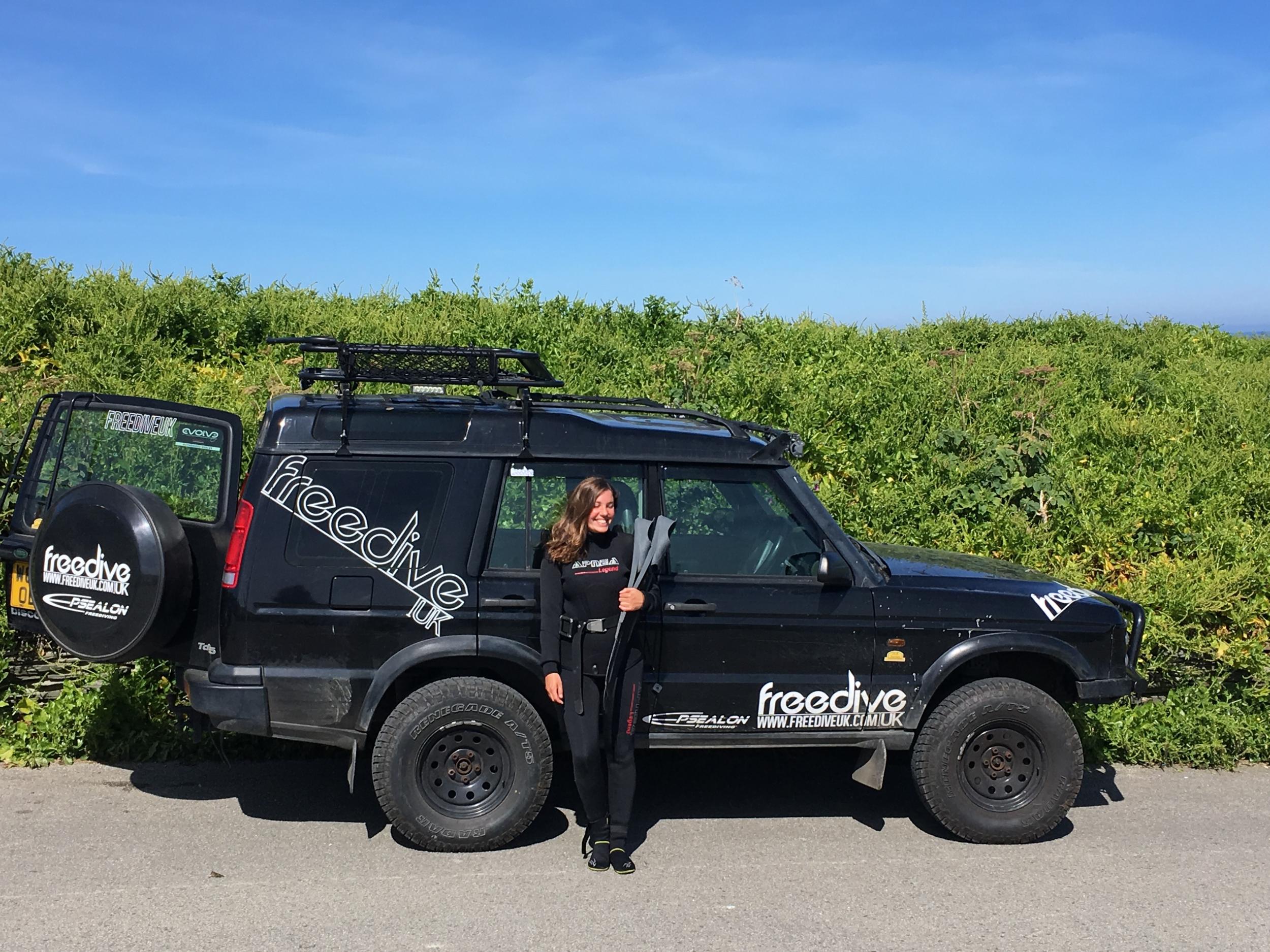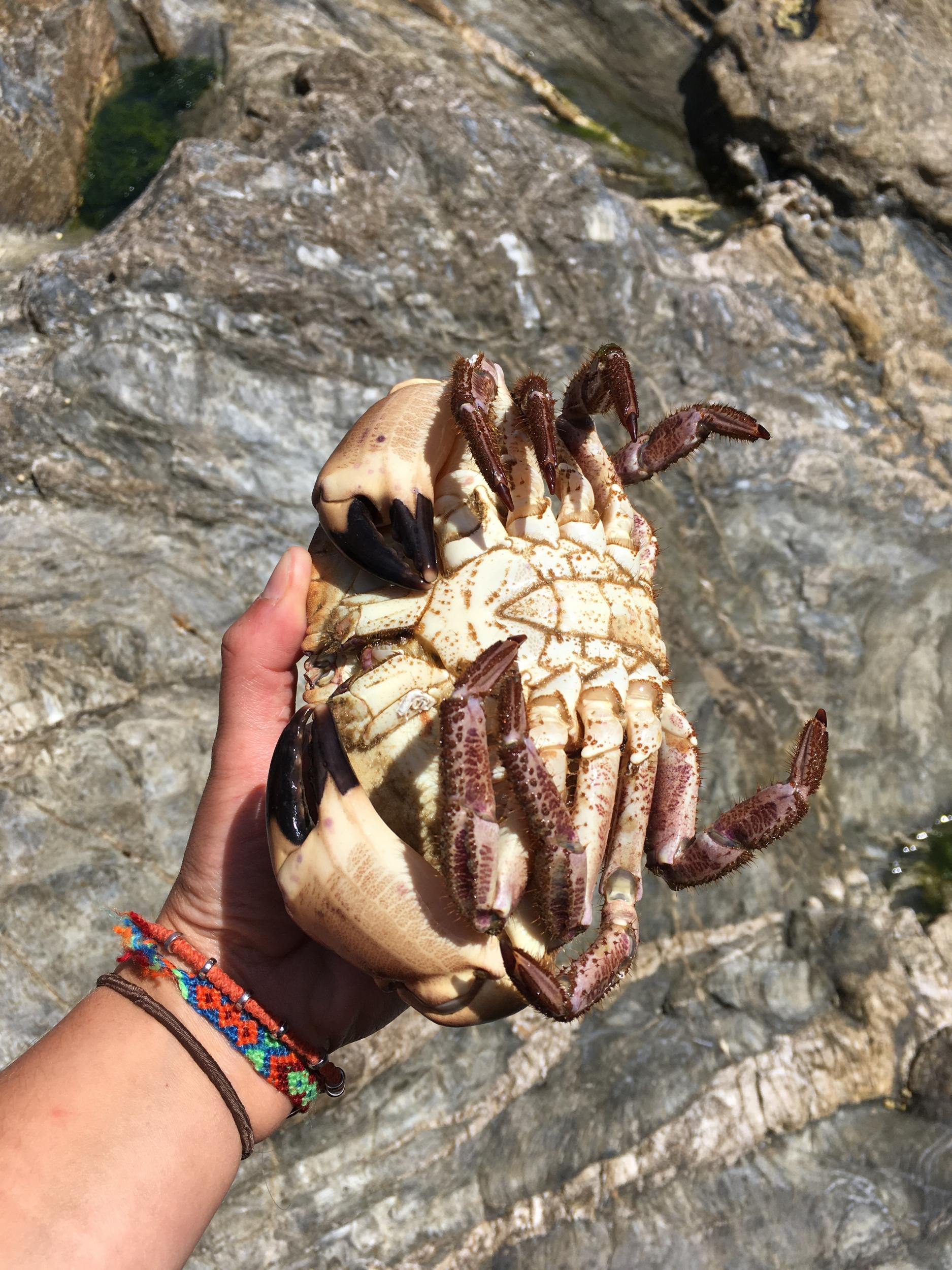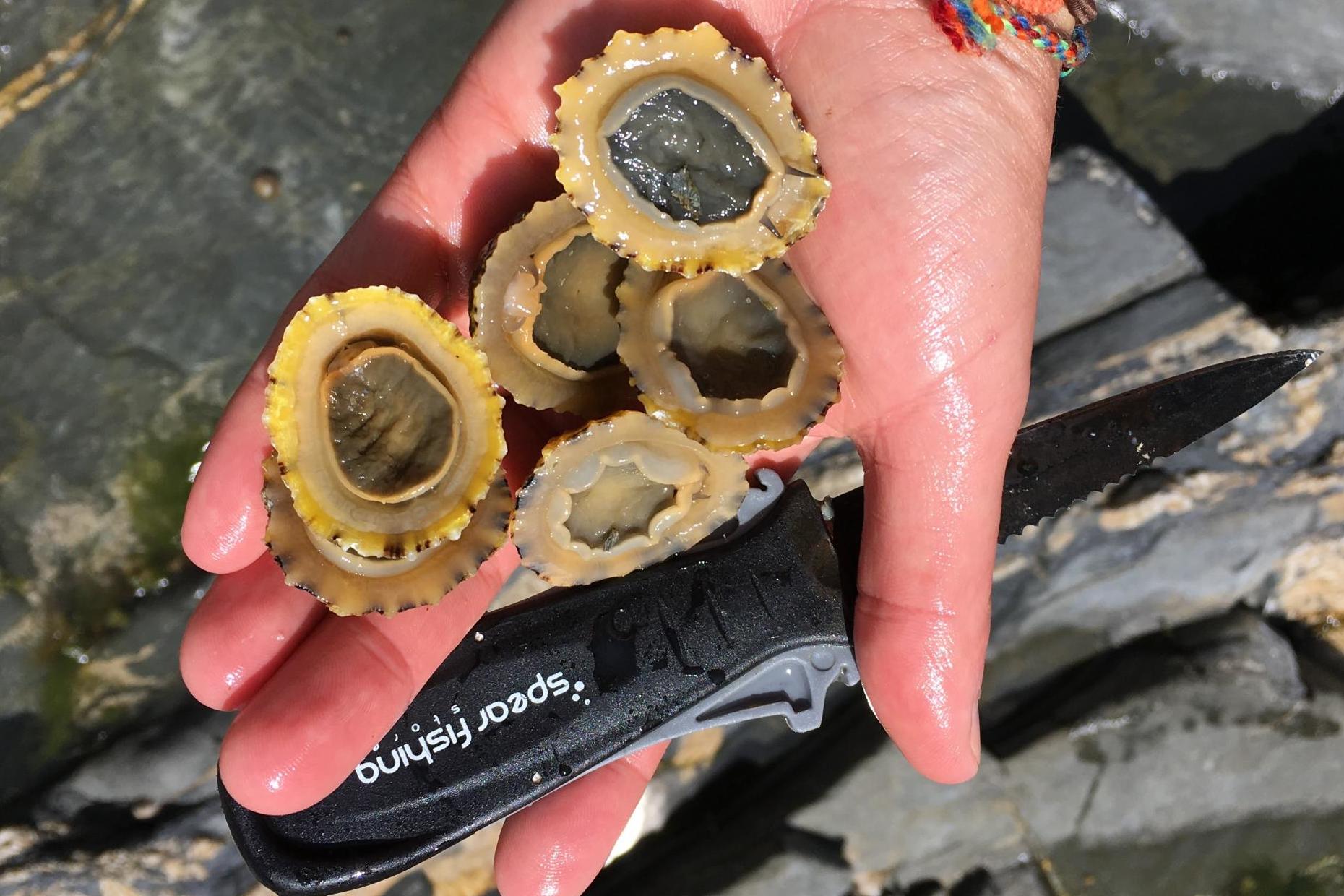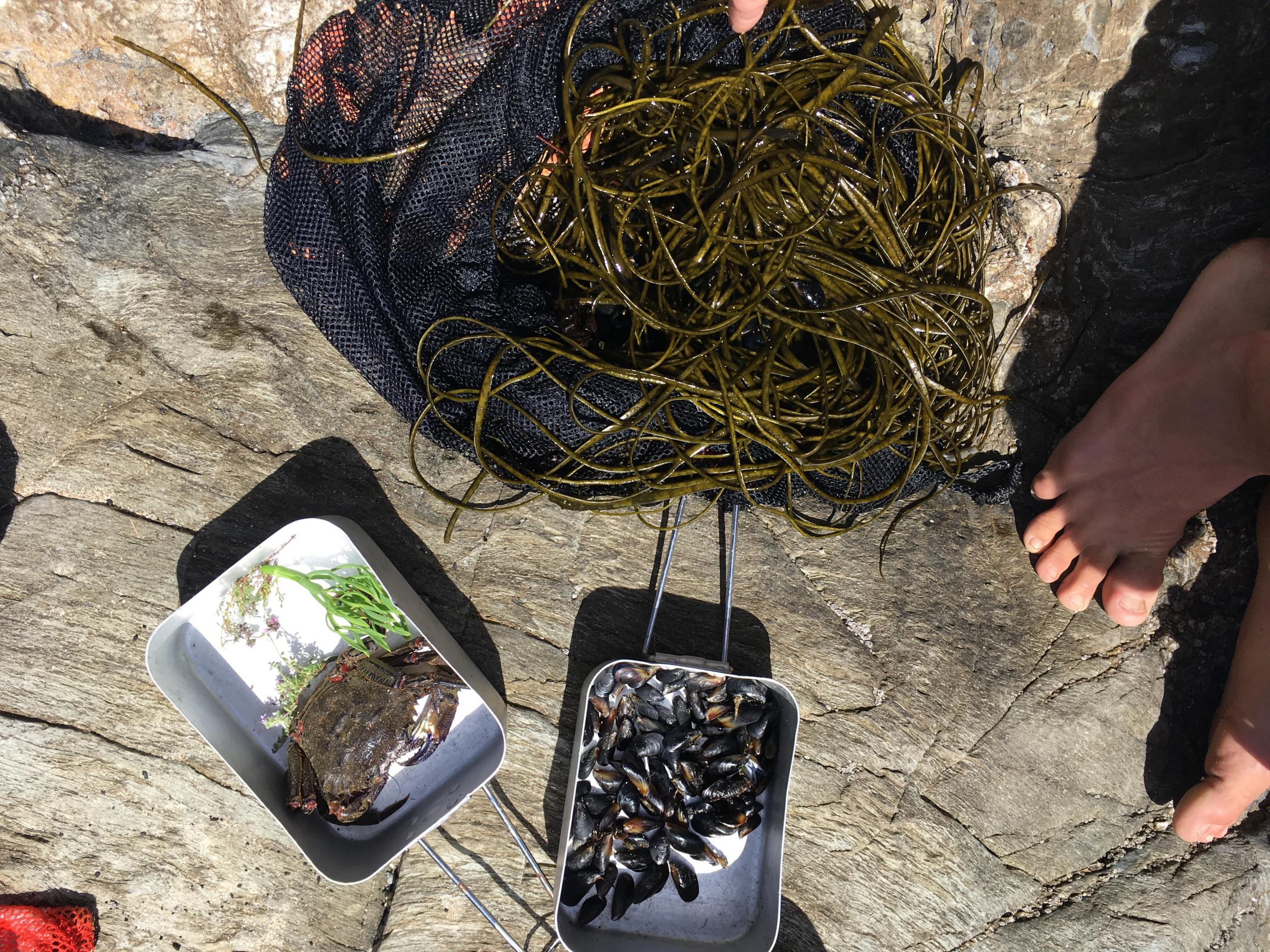What it’s like to go freedive foraging on the Cornish coast
Leave behind the oxygen tank and fill your lungs instead, says Sian Lewis

Diving under the surface of the sea, I’m suddenly in a different world, one of flitting fish and waving fronds of seaweed in wonderfully clear water. I feel the initial sting of cold ebb away as I sink to the seafloor and attempt to grab a fat brown crab, but he scuttles into the fronds of sugar kelp before I can nab him. I discover a bed of mussels though, my guide demonstrating how to slice a section of them off with a sharp knife.
This is the magical and ancient art of freediving, and it’s probably the closest I’ll ever get to breathing underwater without developing gills. There are no clunky oxygen tanks here – just you and your lungs, holding your breath underwater for minutes at a time. It’s also known as apnea: literally, the cessation of breathing.
It’s more normal than you might think. The nomadic, seafaring Sama-Bajau people of Indonesia can hold their breath for an astonishing 13 minutes, and have been hunting on the ocean bed for thousands of years. Recent research suggests they have evolved abnormally large spleens that act rather like organic scuba tanks by filtering oxygen from the blood.
I may not be quite up to those standards – I reckon my spleen’s pretty average-sized – but I decide to put the principles, the same ones used by the sport’s forebears, into practice. Forget Indonesia: Cornwall’s invitingly clear coastline is the perfect place to learn in Britain, with Explorers Connect’s freediving and foraging weekend in Newquay the ultimate experience for first-timers.
Beyond learning how to dive to the ocean floor for minutes at a time, the two-day course also teaches you how to put freediving to good use by collecting edible goodies underwater, to be enjoyed as part of a just-caught barbecue on the beach.
Before we can get in the ocean, we have to practise prolonged breath holds in the safety of a swimming pool. I kit myself out in the freediver’s uniform of thick, blubbery two-piece wetsuit, long flippers, weight belt and mask, then try floating on my back and slowing down my breath.
Then it’s time for the psychologically challenging step of flipping over and hovering for as long as I can with my face submerged, my instructor Sam standing nearby and timing me. I try to empty my mind and will my spleen to become Bajau-sized. Rather than panic-inducing, I end up finding holding my breath deeply calming, and manage three minutes underwater on my third attempt. The weirdest part is the hiccup-like contractions that start to pulsate through the body after a minute or two.

“Just let them happen,” advises Sam. “It’s normal, and I quite like how they feel!”
After getting comfortable with the static breath hold, I try swimming lengths while holding my breath, the strong, long freediving fins making it easy to glide through the water. Time to take these new-found skills to the ocean.
We head to a small sheltered cove which, despite being a stone’s throw from busy Fistral Beach, is empty, the path down to the beach lined with plants that instructor Richard tells me we’ll be collecting later.
Richard and Sam dive effortlessly to the sea bed, 10m below the surface, and stay there for minutes at a time, combing through seaweed and bringing their bounty to the surface. In five minutes we’ve caught two spider crabs. I take a deep breath, keep calm and follow suit – which is when I realise I’m in a different world, deeply peaceful yet bristling with life.

Richard dives into a tiny underwater cave and emerges, triumphant, with a velvety-blue lobster that angrily snaps its claws in indignation. Swimming back into the shallows, we pause to tease limpets off the rocks and grab handfuls of lime-green gutweed and sea spaghetti, then haul our foraged finds on to the beach.
While Richard fires up a small barbecue, Sam takes me on to the cliff path to show me what can be found next to, as well as in, the ocean. We collect sea beet and wild thyme for the pot of boiling seawater in which Richard is cooking up the sea spaghetti – it turns out to be delicious eaten with the mussels. He cracks a crab in half to roast over the coals.

“A proper Cornish barbecue,” he says. “You can’t get fresher seafood than freediving for it yourself.”
Whether it’s because swimming has made me ravenous, or because we found it all ourselves, it’s the best crab I’ve ever eaten. I think the Bajau would approve.
Travel essentials
Explorers Connect organises adventures, holidays and courses all over the UK and around the world.
Freedive UK, based in Newquay, offers AIDA One Star one-day courses for £125; a one-day marine foraging course (no freediving experience required) costs £100.
Join our commenting forum
Join thought-provoking conversations, follow other Independent readers and see their replies
Comments
Bookmark popover
Removed from bookmarks